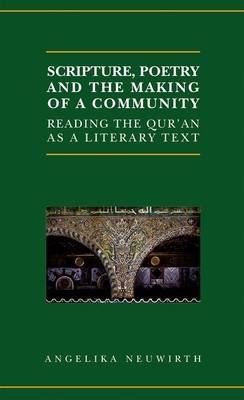
Je cadeautjes zeker op tijd in huis hebben voor de feestdagen? Kom langs in onze winkels en vind het perfecte geschenk!
- Afhalen na 1 uur in een winkel met voorraad
- Gratis thuislevering in België vanaf € 30
- Ruim aanbod met 7 miljoen producten
Je cadeautjes zeker op tijd in huis hebben voor de feestdagen? Kom langs in onze winkels en vind het perfecte geschenk!
- Afhalen na 1 uur in een winkel met voorraad
- Gratis thuislevering in België vanaf € 30
- Ruim aanbod met 7 miljoen producten
Zoeken
Scripture, Poetry, and the Making of a Community
Reading the Qur'an as a Literary Text
Angelika (Professor of Arabic Studies, Professor of Arabic Studi
€ 111,95
+ 223 punten
Omschrijving
In this book, the Qur'an is portrayed in its first and original manifestation, i.e., as the proclamation of the Prophet Muhammad addressed to his listeners. Angelika Neuwirth shows how the proclamation of the Qur'an and its debate of both the Biblical and the pagan poetic traditions gradually induced the emergence of a new religious community.
Specificaties
Betrokkenen
- Auteur(s):
- Uitgeverij:
Inhoud
- Aantal bladzijden:
- 704
- Reeks:
Eigenschappen
- Productcode (EAN):
- 9780198701644
- Verschijningsdatum:
- 6/11/2014
- Uitvoering:
- Hardcover
- Afmetingen:
- 237 mm x 161 mm
- Gewicht:
- 932 g

Alleen bij Standaard Boekhandel
+ 223 punten op je klantenkaart van Standaard Boekhandel
Beoordelingen
We publiceren alleen reviews die voldoen aan de voorwaarden voor reviews. Bekijk onze voorwaarden voor reviews.









